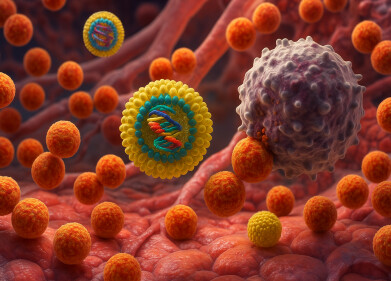News
Why Does Crop Research Matter?
Nov 25 2021
Over the centuries, farming practices have evolved with humanity. From modest small-holdings to multinational corporations, agriculture has always been integral to our survival. In recent years, however, research into the mechanics of crop cultivation has intensified in tandem with the expansion and advancement of our scientific and technological capabilities.
Nowadays, almost every aspect of a crop’s status can be monitored and evaluated, offering vital information about its wellbeing and that of the soil beneath it and the air above it. But why does any of this matter? Is there really any need to over-complicate what has worked so well for so many years? The short answer is yes. For a number of different reasons, getting our agricultural techniques right has taken on a whole new significance. Here are a handful of them.
Soil fertility
The development of products aimed at boosting yields and enhancing crop resilience, such as pesticides, herbicides and fertilisers, have undoubtedly had a beneficial impact on farming outcomes. Nonetheless, their effect on the environment has not always been as desirable. The use of MS/MS and microflow LC to improve sensitivity and decrease matrix effects in pesticide residue samples has enabled us to see how these products endure in the soil and affect its fertility. Since good quality soil is essential to farming, these techniques are invaluable for planning for the future.
Climate change
Intensive use of chemicals not only upset soil and air quality, but also contributes the overall carbon profile of the agricultural industry. In fact, cumulatively, agriculture is said to be responsible for some 8.5% of all greenhouse gas emissions, with a further 14.5% caused by affiliated processes such as land clearing and deforestation. While organic farming methods are touted as being better for the environment, they inevitably lead to lower yields, meaning more land is needed for the same produce. As such, crop research into how farming affects climate change is of paramount importance.
Biodiversity
Products containing chemical additives are detrimental for animal populations, as well. Of course, pesticides are specifically designed to ward off or kill those animals which feast upon human crops, but there are many other organisms which often get caught in the crossfire. The sharp decline in bee populations – whose cross-pollinating activities are absolutely crucial to life on Earth – is one of the more pronounced effects of this problem. Without sufficient research into the unwanted side effects of chemical and land use, biodiversity could suffer irrevocably.
Food security
Last but certainly not least, all of the aforementioned concerns must be balanced with our desperate need to provide enough sustenance for the world’s ballooning population. It’s estimated that there will be almost 10 billion humans on the planet by 2050, meaning that demand for food could increase by as much as 98%. Thankfully, encouraging partnerships between life science and agri-tech sectors are investigating ways to address this issue through the use of sophisticated agricultural practices such as vertical farming, precision engineering and other associated advances in technology.
Digital Edition
Lab Asia Dec 2025
December 2025
Chromatography Articles- Cutting-edge sample preparation tools help laboratories to stay ahead of the curveMass Spectrometry & Spectroscopy Articles- Unlocking the complexity of metabolomics: Pushi...
View all digital editions
Events
Jan 21 2026 Tokyo, Japan
Jan 28 2026 Tokyo, Japan
Jan 29 2026 New Delhi, India
Feb 07 2026 Boston, MA, USA
Asia Pharma Expo/Asia Lab Expo
Feb 12 2026 Dhaka, Bangladesh



















